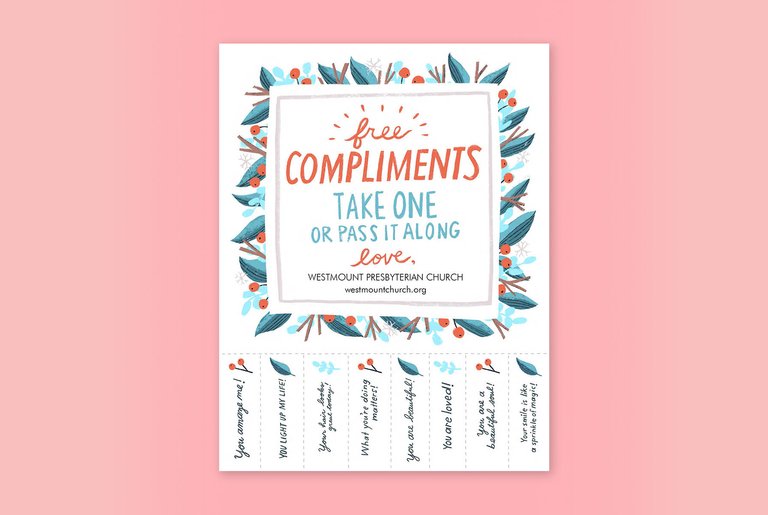When someone is happy with a compliment?
In the intricate tapestry of human interactions, few threads weave together as seamlessly and beautifully as compliments. Compliments are the verbal bouquets we offer to one another, capable of brightening even the gloomiest of days. Among the myriad emotions that compliments can evoke, happiness stands out as a radiant and palpable response. In this article, we delve into the psychology behind why and how compliments have the magical ability to make someone genuinely happy.
The Psychology of Compliments:
Compliments serve as social glue, connecting individuals through the expression of positive regard and appreciation. When someone receives a compliment, it triggers a cascade of positive emotions in the brain. The brain's reward system, primarily driven by neurotransmitters such as dopamine, lights up, creating a sense of pleasure and satisfaction.
Moreover, compliments have the power to validate an individual's self-worth. Recognition and acknowledgment from others contribute to a positive self-image, fostering a sense of belonging and acceptance. The recipient of a compliment may experience a boost in self-esteem and confidence, creating a ripple effect that enhances overall well-being.
The Dance of Dopamine:
Dopamine, often referred to as the "feel-good" neurotransmitter, plays a central role in the happiness associated with receiving compliments. When a compliment is received, dopamine levels surge, creating a euphoric sensation. This chemical reaction reinforces the behavior of both giving and receiving compliments, making it a mutually beneficial exchange.
Furthermore, the positive effects of dopamine extend beyond the immediate moment of receiving a compliment. Individuals who experience regular positive reinforcement through compliments may develop a more optimistic outlook on life, leading to increased resilience in the face of challenges.
The Impact of Sincere Recognition:
While compliments have the potential to induce happiness, the sincerity behind the words amplifies their impact. Genuine compliments, rooted in authenticity and specific observations, resonate more deeply with the recipient. When someone feels that the compliment is sincere and well-deserved, it elicits a profound emotional response.
Sincere recognition goes beyond superficial praise; it communicates a deeper understanding and appreciation for the individual's qualities, achievements, or efforts. This level of acknowledgment fosters a meaningful connection between the giver and receiver, contributing to the positive emotions associated with compliments.
Creating a Culture of Compliments:
In a world often overshadowed by negativity, cultivating a culture of compliments can be a transformative force. Encouraging sincere and positive communication within relationships, workplaces, and communities fosters an environment where individuals feel valued and supported.
Simple acts of kindness, expressed through genuine compliments, have the power to uplift spirits, improve relationships, and contribute to a collective sense of well-being. As individuals embrace the habit of recognizing and celebrating each other's strengths, the joy associated with compliments becomes a shared experience that enriches the human connection.
Conclusion:
Compliments are more than just words; they are potent expressions of appreciation that can ignite happiness within the human soul. Understanding the psychological underpinnings of the joy associated with compliments allows us to appreciate the significance of positive recognition in our daily interactions. As we navigate the complexities of human relationships, let us be mindful of the transformative power of compliments and strive to create a world where happiness is not just an individual pursuit but a collective celebration of each other's worth.


Hereby a compliment to test the theory in practice: Good job!

!DHEDGE
you have 0.0 vote calls available today, your vote calls will reset at next snapshot. You can buy DHEDGE on Tribaldex or earn some daily by joining one of our many delegation pools at app.dhedge.cc to increase your daily amount.
Thank you